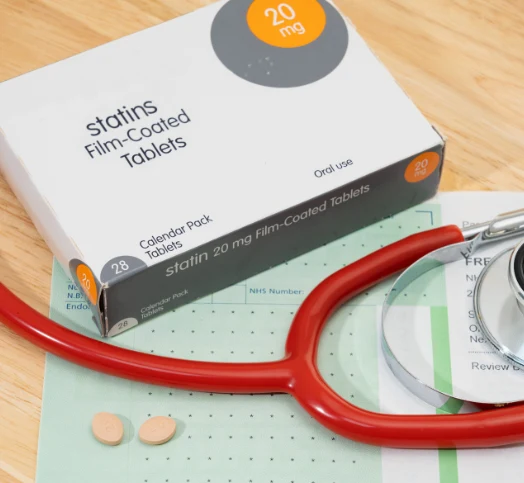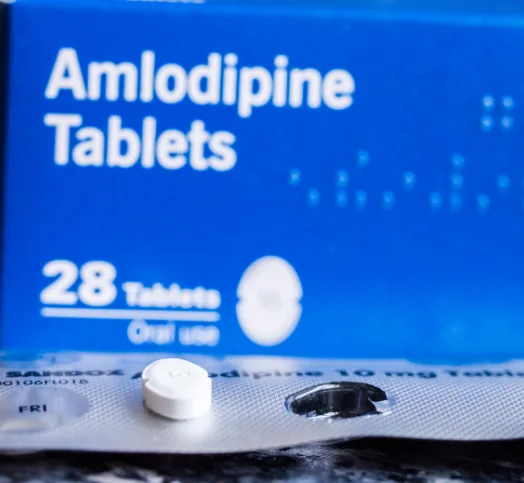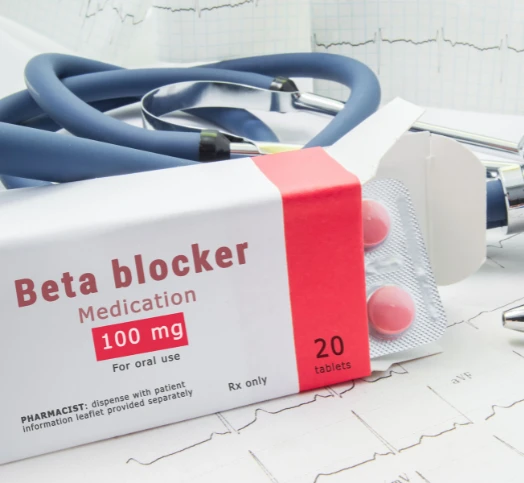Your doctor may have recommended an exercise stress echocardiogram test to evaluate symptoms you may be experiencing. Let’s delve into this test and why it may be helpful.
The stress echocardiogram test, also known as an echocardiography stress test or simply a stress echo, is a diagnostic procedure used to evaluate the function and health of your heart. This test is usually recommended for people with chest pain, shortness of breath, or palpitations and is a screening test to examine any possible features of coronary artery disease.
 An echocardiogram, also known as an “echo,” utilizes ultrasound waves to create real-time images of the heart’s structures and its pumping function. During this process, the echocardiogram captures images of the heart at rest and immediately following exercise (stress phase). These images help cardiologists assess the heart’s response to stress, identify any potential abnormalities, and evaluate overall cardiac function.
An echocardiogram, also known as an “echo,” utilizes ultrasound waves to create real-time images of the heart’s structures and its pumping function. During this process, the echocardiogram captures images of the heart at rest and immediately following exercise (stress phase). These images help cardiologists assess the heart’s response to stress, identify any potential abnormalities, and evaluate overall cardiac function.
What is a stress echocardiogram test?
A stress echocardiogram test combines ultrasound imaging with physical stress/exercise to assess your heart’s function under exertion. During the test, you will exercise on a treadmill or stationary bike while medical professionals monitor your heart rate, blood pressure, and electrocardiogram (ECG). Meanwhile, a skilled technician will use an ultrasound device to capture images of your heart before and immediately after exercise. These images enable the cardiologist to compare your heart’s function before and after exercise, aiding in the identification of potentially less active areas. This observation could indicate narrowing or blockage in one or more heart arteries.
Preparation before the test
The test takes around 30 minutes and is performed in a hospital or outpatient clinic. You may be asked to fast or avoid caffeine or certain medications before the test, so follow your clinic’s instructions carefully. Medications like certain heart tablets, including beta-blockers, reduce your heart rate, which will, therefore, affect the stress test results, where the aim is to maximize your heart rate with exercise.
Certain medications are typically withheld before an exercise stress test to ensure accurate results. The specific medications that need to be discontinued may vary depending on individual circumstances and the instructions provided by the healthcare provider. However, here are some common types of drugs that are often withheld before an exercise stress test:
- Beta-blockers: Medications such as metoprolol, atenolol, or propranolol, which help lower heart rate and blood pressure, are often discontinued before the test. These medications can interfere with achieving the target heart rate during exercise.
- Calcium channel blockers: Drugs like diltiazem or verapamil, used to treat high blood pressure or certain heart conditions, may be stopped before the stress test. These medications can affect heart rate and blood pressure responses during exercise.
- Some anti-arrhythmic medications: Certain anti-arrhythmic drugs like amiodarone, digoxin, or flecainide might be withheld to prevent interference with heart rhythm during the stress test.
- Caffeine-containing medications or beverages: Caffeine can influence heart rate and blood pressure, so avoiding caffeine before the test is advisable. This includes medications containing caffeine (e.g., some cold and flu remedies) and caffeinated beverages (e.g., coffee, tea, energy drinks).
It’s essential to consult with your healthcare provider for specific instructions regarding which medications to withhold before an exercise stress test. They will provide personalized recommendations based on your medical condition and the medications you are currently taking.

Unveiling the Benefits of a Stress Echocardiogram
Your doctor might propose a stress echocardiogram if chest pain, shortness of breath, or fatigue concerns your heart health. This test is crucial in pinpointing potential blockages or irregularities within your heart’s blood vessels that could trigger these symptoms.
I often clarify to my patients that the stress echo test doesn’t directly inspect the arteries around the heart. Instead, it provides an indirect assessment of the heart muscle’s performance. Observing variations in your heart’s pumping action before and after exercise could indicate a potential blood flow problem to the heart muscle, potentially signaling a significant blockage. The stress echo test proves especially effective in identifying changes associated with 60-70% or higher artery blockages.
On occasion, the stress echocardiogram is employed to track a heart condition’s progress or evaluate the treatment’s efficacy. For instance, following a heart attack or heart surgery, your doctor may recommend a test to gauge your heart’s recovery.
A typical room equipped for stress testing. The treadmill serves as an integral component of stress echocardiogram tests, enabling patients to engage in controlled physical exercise while their heart rate and other vital signs are closely monitored. This setup allows healthcare professionals to evaluate the heart’s response to exertion and assess its function under stress.
What are the risks of a stress echocardiogram test?
A stress echocardiogram test carries some risks like any medical test or procedure. However, these risks are generally considered low and outweighed by the test’s potential benefits. The most common risks of a stress test include:
- Chest pain or discomfort
- Shortness of breath
- Dizziness or lightheadedness
- Irregular heartbeat
- High or low blood pressure
These symptoms are usually temporary and can be treated quickly and easily. In rare cases, more serious complications may occur, such as a heart attack or stroke. However, these complications are infrequent and usually occur in people with pre-existing heart disease or other risk factors. The clinic you will be attending will have the necessary equipment to manage any potential medical emergency, with trained staff always supervising the test. One of the main advantages of a stress echo test versus other tests is that it is safe, easy to perform, and does not expose you to radiation that may be used in different stress tests (e.g., nuclear stress tests).
Understanding the Accuracy of Stress Echocardiograms: Exploring False Positives and False Negatives
The rate of false positives and negatives in a stress echocardiogram can vary depending on several factors, including the patient’s specific clinical characteristics, the quality of the test, and the expertise of the healthcare professionals involved. However, I can provide some general insights into these rates.
1. False Positive Rate:
- A false positive result in a stress echocardiogram occurs when the test suggests a significant heart problem that isn’t present.
- The false positive rate can be influenced by factors such as pre-existing heart conditions, other medical conditions (e.g., hypertension), and the interpretation of test results.
- In general, the false positive rate for stress echocardiograms is relatively low, especially when performed by experienced healthcare providers and in patients with a lower likelihood of having coronary artery disease.
2. False Negative Rate:
- A false negative result in a stress echocardiogram occurs when the test fails to detect a significant heart problem that is present.
- The false negative rate can be influenced by factors such as the imaging equipment’s accuracy, the test’s timing in relation to the development of heart disease, and the patient’s individual characteristics.
- False negatives are more likely to occur in cases where coronary artery disease is in its early stages or when the test conditions (e.g., exercise intensity) are unsuitable for detecting abnormalities.
- It’s important to note that stress echocardiograms have improved over time with advances in technology and protocols, reducing the false negative rate.
Ultimately, the accuracy of a stress echocardiogram depends on the specific circumstances and the expertise of the healthcare team conducting and interpreting the test. In clinical practice, stress echocardiograms are often used with other diagnostic tests and clinical evaluations to ensure a comprehensive assessment of a patient’s heart health: your doctor’s expertise and your medical history matter. Age, sex, habits, and health conditions are considered for a comprehensive assessment. This personalized approach integrates stress echocardiogram results into your overall health context.
It’s crucial to remember that stress tests don’t measure the degree of arterial blockage; instead, they analyze heart pumping patterns, providing indirect indications of heart health.
Who may not benefit from a stress echocardiogram?
While a stress echocardiogram is helpful for diagnosis in many cases, it may not be suitable in specific situations. For instance, individuals with obesity or underlying lung conditions might face challenges in obtaining clear heart images. Similarly, those experiencing back, knee, or hip discomfort or limited mobility might find treadmill-based stress testing difficult. In such scenarios, your doctor could suggest alternatives like nuclear stress or pharmacological stress tests, which offer similar insights without physical exertion. Moreover, patients with specific heart conditions like severe aortic stenosis or advanced heart failure might not be candidates for a stress echocardiogram due to associated risks. Your doctor will assess your situation and recommend the most appropriate diagnostic approach tailored to your needs.
Conclusion
A stress echocardiogram test is an important diagnostic tool that can help your doctor evaluate the health and function of your heart. If you are experiencing symptoms of heart disease or have a known heart condition, it’s important to speak with your doctor about whether a stress test is appropriate. With proper preparation and monitoring, a stress echocardiogram test is a safe and effective way to assess your heart’s health and ensure you receive the care you need. Whether the test provides reassurance or identifies an underlying condition, it can be crucial to maintaining optimal heart health.










